Personal experience: Russian woman told about studying engineering in the USA
'18.04.2018'
Source: Strelka
Polina Polikakhina, a student at Portland State University, spoke about the features of engineering education in America, the competition for building bridges and lifestyle in the largest city of Oregon. Her story published edition Strelka magazine.
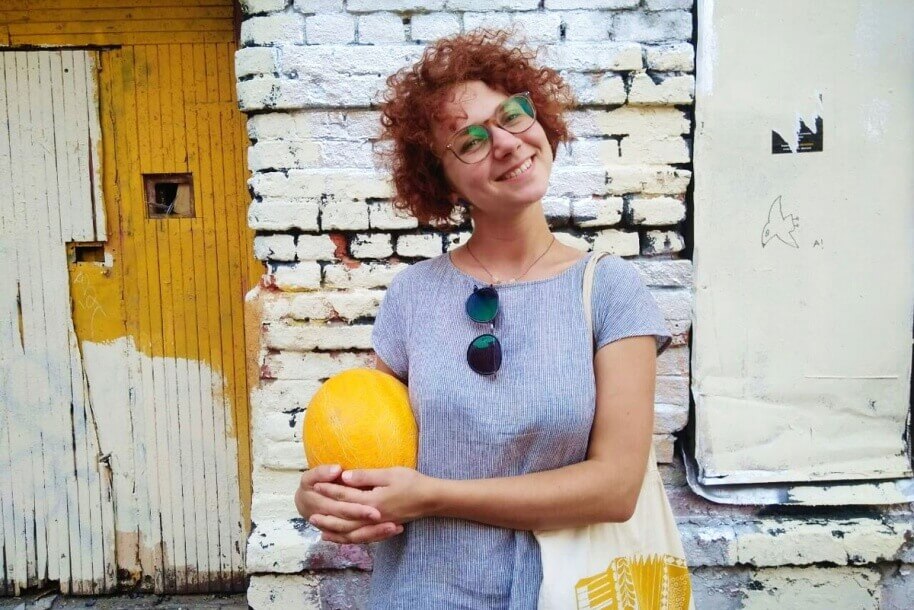
prehistory
I was born and raised in Khabarovsk. In 2012, my mother won a green card, and as soon as I graduated from school, we moved to the USA. We had relatives and acquaintances in Alaska, so we settled in Anchorage. I lived there for a year and a half, and then I went to travel around America and Europe, I visited Russia.
In 2014, she moved to Portland. The first year she worked at a bakery, and then entered Portland State University. Now I am in the third year of undergraduate studies.
University Application
My program is called Civil Engineering - construction engineering. After traveling and traveling, I wondered how you can make cities better for people. The closest was this specialty.
In the USA, all engineering specialties are grouped into four groups: construction, mechanics, electronics, and computer engineering. My specialty as a civil engineer includes many areas: transport engineering, geodesic, environmental engineering, structural engineering of buildings, bridges and tunnels. This is not just a builder, but a specialist who creates the environment in which people live.
It was very easy to do. In America, in state universities there are almost no entrance exams, only in prestigious, elite colleges. The only thing that was required of me was to send a school certificate. The entrance threshold is low, my average score was much higher than necessary.
My studies cost about 9 thousands of dollars a year. I partially paid this amount from my savings, partly thanks to government support. There is a federal program in the USA FAFSAwhich financially helps students. In the first year, the FAFSA paid me two-thirds of the cost of study, and in the second, only a quarter, and I had to work a lot. Therefore, all last winter I wrote an infinite number of essays on grants.
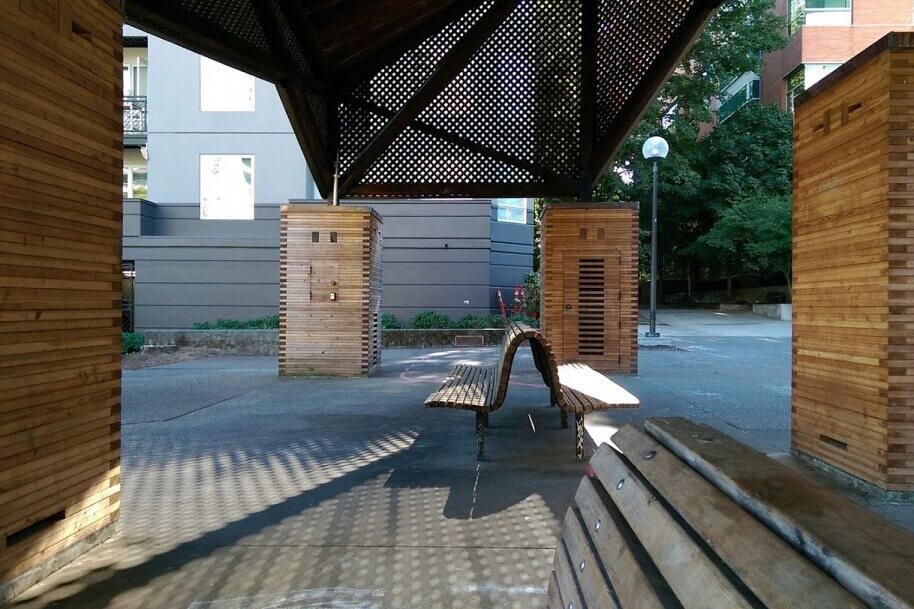
As a result, she received a very large grant, which will cover almost the entire study until the end of the university. I will be paid annually by 8 thousand dollars. In addition, for this year I received several engineering grants, and in the end I got 16 thousands. The remaining 7 is given to me in cash every semester - as a scholarship in Russia, only more.
Studies
Half of universities in America study on semesters, another half - on trimesters. My university works on the second system. In fact, there are four semesters: autumn, winter, spring and summer, but in summer almost no one studies. Each trimester lasts ten weeks, then a week of the session.
There is no such thing as a course or group. After entering the student receives a list of disciplines that must be mastered to become an engineer. I am offered a sequence and intensity, but I can change it. For example, they say to me: “Here, Polina, five subjects. Take them and learn this semester. ” And I answer: "No, guys, five subjects will not go, let me teach three." And I register for three disciplines. Therefore, I will have to study longer - five years instead of four. But I learn better and have time to work.
Some people who graduate from American schools never took a textbook on physics or chemistry in their hands, and the level of mathematics from them is often lower than in Russia.
Therefore, the first two years of undergraduate education are considered general education. I had physics, chemistry, higher mathematics, strength of materials, static, dynamics. We were taught different programs like AutoCAD, MathCad and Excel.
The depth of knowledge that I get at the university may be less than in Russia. I know that my friends in Russia sometimes study more advanced subjects. But the advantage of American education is that there is no freebie here. In no way. Yes, maybe, last year I studied the physics course of the ninth or tenth grade of the Russian school, but at the same time ten skins are being pulled from me, and every week I take homework.
University practice does not force anyone to practice. Here there is a specialist who can advise something or help to make a resume, but students are looking for a place of internship themselves. University anyway. It can not pass at all, just then you will not find a job. If you have four years of education and no practical skills, the chance of finding a job is very low.
Yes, I now fight my head against the ice, I try to study well and get good grades. But in the end, no one will look at them. Everyone will look at what I did. Experience is much more important than ratings.
In the US, bachelors do not write diplomas. You have mastered all the required disciplines and graduated. But in our university, the last two trimesters are students working on team projects for real clients. For example, my friends designed a part of the span for one of the ten Portland bridges, which is currently under reconstruction. Someone designed the street: the location of sidewalks, traffic signs, pavement.
Bridge Construction Competition
It sounds strange, but for the second year I have been taking part in competitions for the construction of a bridge. It is hosted by the American Association of Civil Engineers. First, a regional competition is held - approximately 15 colleges from five states. Then three winners from each region are sent to international competitions. There are teams from five countries: America, Canada, China, Mexico and Puerto Rico.
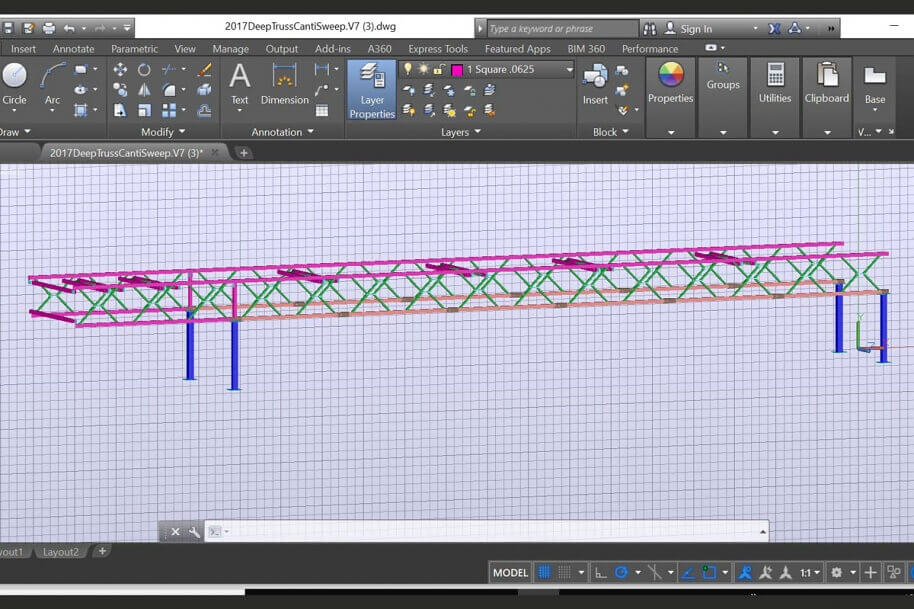
The bridge is a construction approximately 6 meters long, consisting of many details. It has no practical use, the bridge needs to be made just for the competition. We build it in AutoCAD, then we transfer it to the SAP2000 program and check how strongly it bends under a certain weight. All December we test our bridge, draw it in 3D, prepare the drawings. In January, we begin to build. The university has a workshop, where there are saws, welding machines and other tools. We will cut, boil and assemble the bridge from steel pipes.
In April, we will have to assemble our bridge as soon as possible. It is very easy to build a bridge that will bend a little under the test load. To build a bridge that will bend a little and at the same time will quickly assemble, is very difficult.
I have several mechanical engineers in my team who have designed the necessary connections. They are made to order. Recently we successfully tested several samples and ordered the rest of the batch of compounds. The other day I ordered steel, so we are about to start our production.
Last year I was just a participant in the project and helped a little. Now I am the captain. Since last year, no one was left, and I made announcements, went to different lessons and lectures, called for people to watch last year’s bridge. As a result, 130 people subscribed to my newsletter, and I was able to put together a new team.
In early September, we were given the rules of the competition. This is a forty-page book in small print. It is very easy to miss a rule and earn a disqualification. Over the past five years, teams of our club 4 times disqualified from the competition simply because they made a formal mistake. You spend 7 months of your life, come to competitions, and they say to you: “Guys, I'm sorry, you have a bolt screwed in there wrong, let's see you.”
All this is not related to the educational process and absolutely not necessarily, I climbed there at my own will. But this is an incredibly cool experience. I can’t imagine how I would study now if I didn’t make this bridge.
It's one thing when you sit in a lecture, write tests and study material. Quite another when you can apply this knowledge in real life. And most importantly - it will fall into my resume. It will be much easier for me to find an internship or a job than any other student who does not engage in similar projects.
Work and Networking
In America, many areas, including engineering, are built on personal relationships. You get a job, not because you're a good engineer, but because you know someone. Nobody hides that.
I recently asked a transport engineer what he would advise me to do in order to increase my chances of finding a job in the transport sector. He said: "Meet people."
He did not advise to take a course or study a program, networking is important. All the time make friends-engineers, because then they will get you a job! Therefore, I do not just fill out a resume, but I also get to know professionals and build relationships with other people. Including those who can write good letters of recommendation.
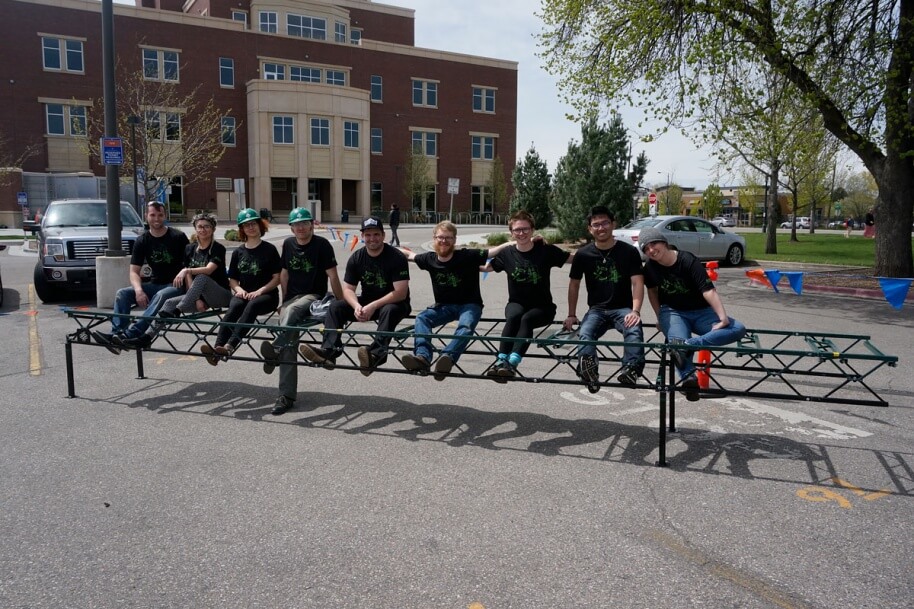
After undergraduate, I will not go directly to the magistracy. Everyone is advised to first work, try yourself in a professional field. I want to work in transport engineering and, if I like it, study further.
Portland
I believe that Portland is a unique US city. Here live other people who are much closer to Europeans than most other Americans. The slogan of the city - "Keep portland weird, "Save Portland Strange." There are a lot of strange people here. I would not say that this is the case everywhere, at the university, everything is ordinary. But in some areas, people dress up who are ready to go and go like this every day.
Here the bicycle infrastructure is very developed. Portland is considered to be the city where the largest number of people in America travel by bike every day.
Americans almost do not cook, and in Portland it is felt especially strongly. Here an insane number of cafes and snack bars. The city is famous for its food wagons. There are a lot of musical events, there are several places where live jazz is played at a very good level every week.
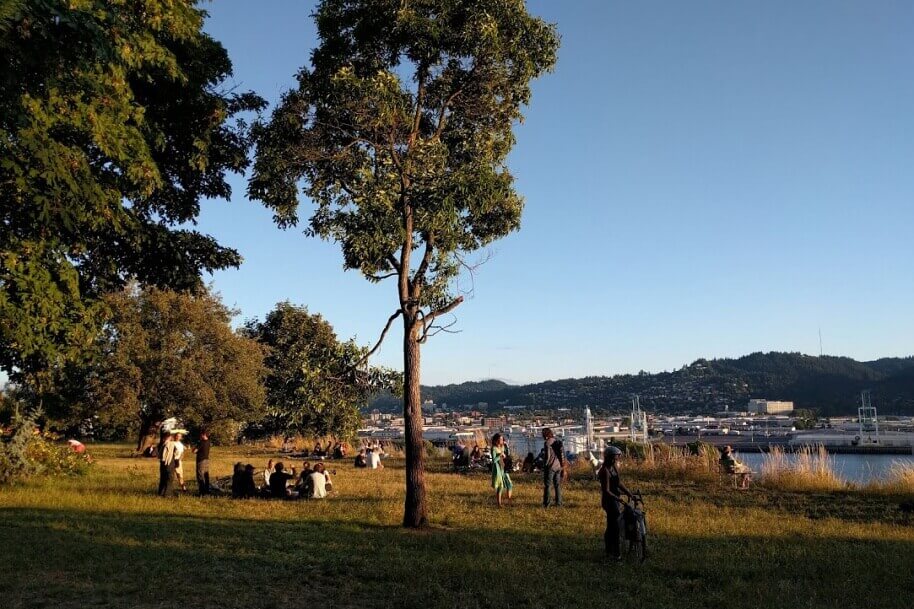
He is also green. In Portland, a huge number of trees, including fruitful. Apple trees, figs and pears grow throughout the city. In the summer I ride a bike around town a lot, pick fruit and then make jam from them.
I want to believe that one day I will return to Russia. I miss the country so much, just crazy. Most of your friends. But I have already settled here, I have many new friends in the United States, and to return to Russia is to drop them. This will not be an easy step. But in America, everything is so good, but in our country there is still a lot to do. And I understand that with my education I can really change some things if I can get through. But I still have to study for two and a half years, and then decide.







